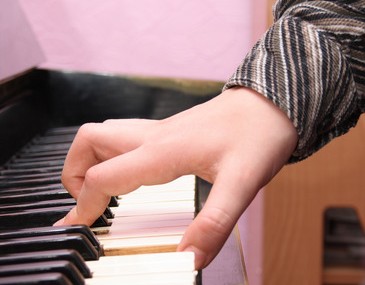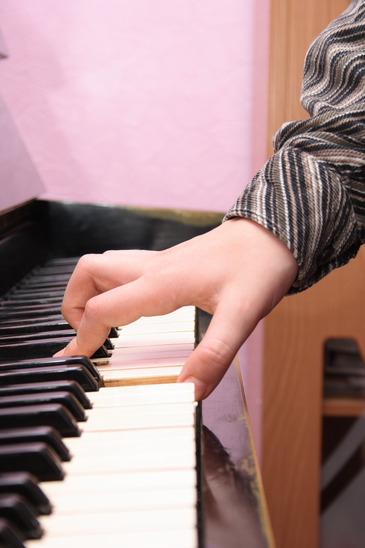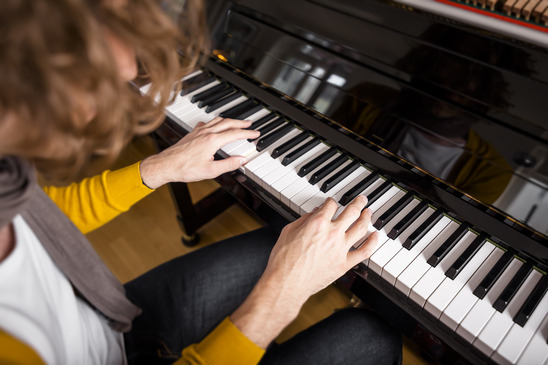Adults are now the highest group of participants learning how to play the piano. If you’ve always had the desire to make beautiful music, but are frustrated with your current piano playing skills, there is hope. Just like any challenge you’ve faced over your life, piano takes time.
 People typically approach piano playing in one of three ways. They either try and play by ear, use books, DVDs or software for self-help instruction, or rely on using a professional piano teacher to move forward. No matter which method you prefer, take a look at these tips to see if you are doing all you can to improve your piano playing skills.
People typically approach piano playing in one of three ways. They either try and play by ear, use books, DVDs or software for self-help instruction, or rely on using a professional piano teacher to move forward. No matter which method you prefer, take a look at these tips to see if you are doing all you can to improve your piano playing skills.
Practice, Practice, Practice
Remember when your mom made you take swimming lessons and you had to hit the pool week after week at the same time? There is a reason for that. We learn better through repetition. By doing something at the same time, it gives us a sense of commitment. Take out your planner and schedule practice time every week. Then stick with it as much as possible.
Plan and Track Your Practice
As you progress with your training, this will come naturally. But at first, use a journal to plan out exactly what you hope to accomplish each session. It may be to practice scales or to learn and incorporate a new note into a song. By seeing your progression on paper, it will help you stick with your practice.
Improve Your Musical Reading Skills
No matter which way you prefer to learn, in order to progress to more difficult music, you will eventually have to learn music. Spend time on the physical aspects of playing the piano, but don’t forget about the notation side of things. Understand notes, tempo, key, time signatures, clefs, etc. All of it will help you develop a greater appreciation of the art of piano playing.
Improve Your Finger Placement and Speed
A runner doesn’t jump out of bed and take off on a 10 mile run. He stretches, flexes, and makes sure he’s warmed up before he begins. A great piano player approaches his craft in much the same way. Do some finger stretching exercises. Focus in on finger placement and make sure the right fingers connect with the correct keys. Add some scales to your warm up routines. By focusing in on this at the beginning, you’ll be a much better player when you advance into more difficult music.
Memorize The Basics
Once you memorize your addition, subtraction, and multiplication tables as a child, they come naturally. The same applies to musical scales and chords. The more you practice them, the more you learn them, the more natural they become. Each of these will help you as you dig into more complex music choices down the road.
Improve Your Musical Ear
To get a better understanding and appreciation of how a piano adds to overall music composition, do things to listen and learn. Attend your local symphony. Listen to music from some of our greatest piano players. Key in to each individual instrument and how it applies to the overall sound.

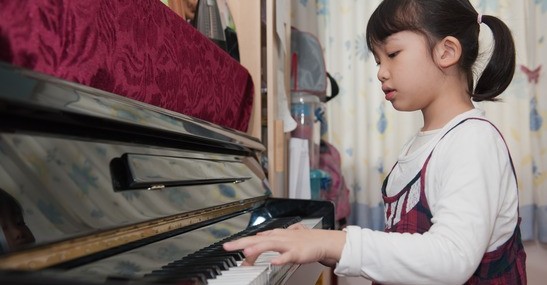
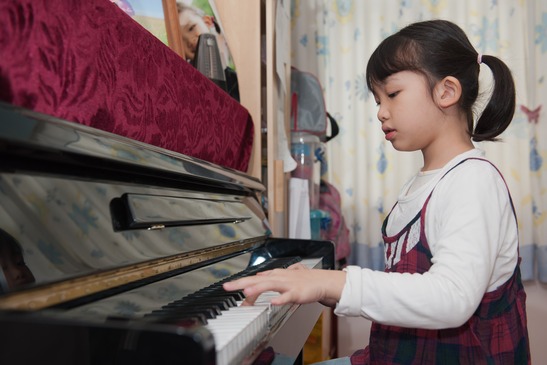 While these families mean well, many of them end up fighting a loosing battle between the need for practice and the child’s obvious dislike for it. So, what makes a kid hate practicing and what can parents do about it? Here are a number of potential reasons to consider as well as a few solutions that might help resolve the situation.
While these families mean well, many of them end up fighting a loosing battle between the need for practice and the child’s obvious dislike for it. So, what makes a kid hate practicing and what can parents do about it? Here are a number of potential reasons to consider as well as a few solutions that might help resolve the situation.
 Helping your child acquire the same appreciation for the piano involves more than just playing some music on your stereo. Teaching your child to play the piano is the ideal way to make him/her grow to love the piano. If you are thinking about investing in piano lessons for your child, here are 10 secrets to help your child learn to love taking those lessons!
Helping your child acquire the same appreciation for the piano involves more than just playing some music on your stereo. Teaching your child to play the piano is the ideal way to make him/her grow to love the piano. If you are thinking about investing in piano lessons for your child, here are 10 secrets to help your child learn to love taking those lessons!

 When it comes to your child’s schedule, you have many decisions about how they should spend their time. So, why should you choose to put your child in piano lessons?
When it comes to your child’s schedule, you have many decisions about how they should spend their time. So, why should you choose to put your child in piano lessons?